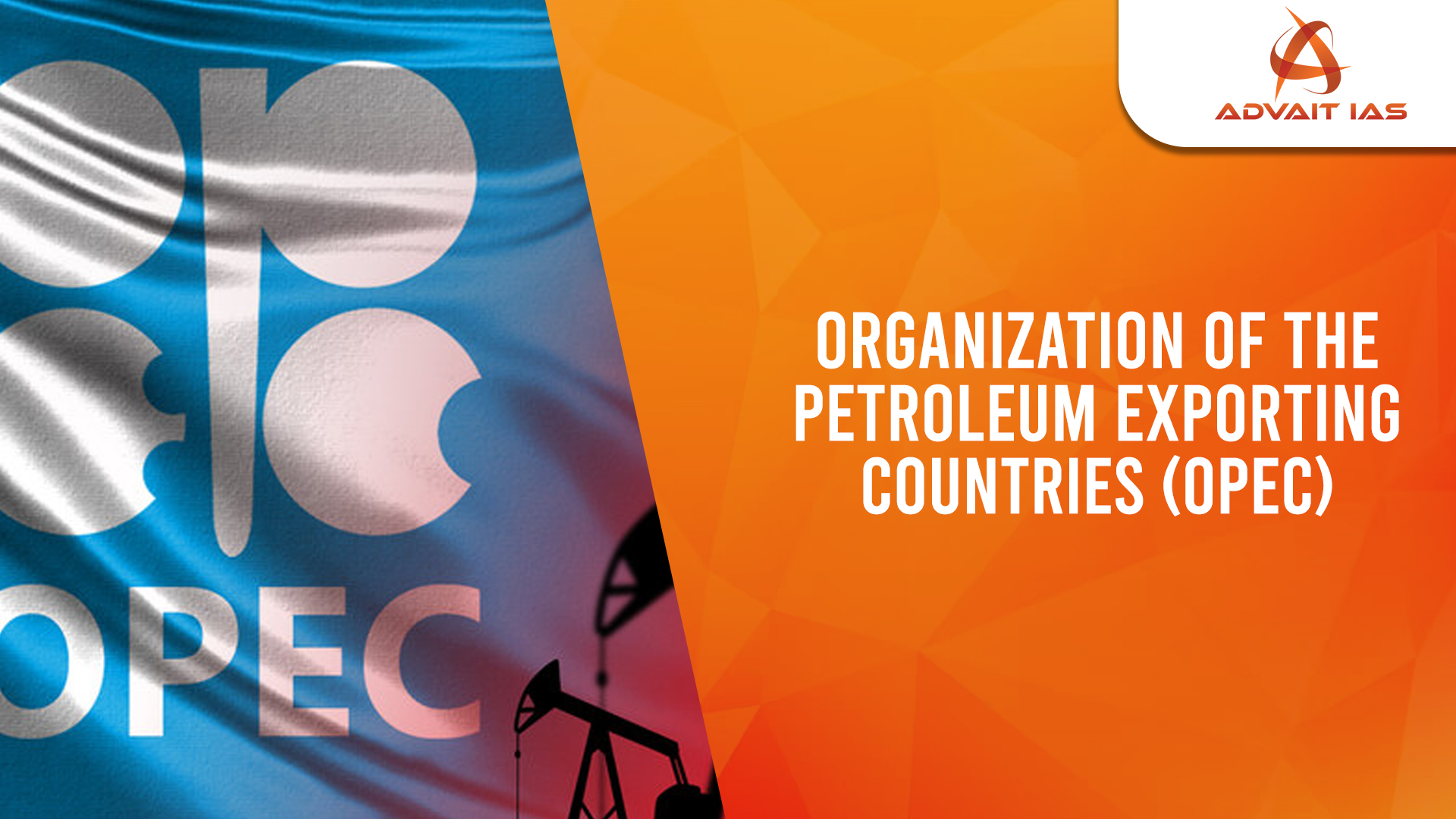OPEC+ group, led by Saudi Arabia, announced an increase of 411,000 barrels per day in oil production.
- This is the third consecutive monthly production hike, reversing the voluntary output cuts made in 2023.
Organization of the Petroleum Exporting Countries (OPEC)
- Founded: 1960, at the Baghdad Conference by Iran, Iraq, Kuwait, Saudi Arabia, and Venezuela.
- Headquarters: Vienna, Austria.
- Members: 12 (including Algeria, Iran, Iraq, Kuwait, Libya, Nigeria, Saudi Arabia, UAE, Venezuela).
- Objectives:
- Coordinate petroleum policies among members.
- Ensure price stability, secure supply to consumers, and fair return to investors.
- Global Role:
- Produces ~30% of global crude.
- Holds ~80% of proven oil reserves.
- Accounts for ~50% of global oil exports.
- Saudi Arabia is the largest producer within OPEC.
What is OPEC+?
- Formed: 2016, as an alliance between OPEC and 10 non-OPEC oil producers.
- Members: Includes Russia, Kazakhstan, Oman, Mexico, South Sudan, etc.
- Goal: Manage oil prices amidst increased U.S. shale production.
- Combined Output: OPEC+ accounts for about 60% of global oil production.
Evolving Trends in Global Oil Demand
- IEA Forecast: Only 73% oil demand growth in 2025.
- Rising support for “peak oil demand” theory due to:
- Economic slowdown.
- Rise in EV adoption.
- Stronger climate action.
- Global GDP growth expected at 2.2% (2025) and 2.4% (2026) – lowest since 2008.
- WTO projects a 2% decline in global trade in 2025.
- Even if supply falls, demand weakness may keep prices subdued.
- Sanctioned countries have limited capacity to influence markets unless restrictions ease.
Implications for India’s Economy
Positive Impacts
- India is the 3rd-largest crude oil importer.
- Oil demand growth at ~3.2% in 2024–25 (vs 0.73% global).
- India to contribute 25% of global demand growth in 2025.
- Every USD 1 drop in crude prices saves India USD 1.5 billion in imports.
Risks and Challenges
- Gulf economies may weaken due to lower oil revenue → Reduced trade, investment, and tourism with India.
- Risk to employment of 9 million Indian expatriates in the Gulf.
- Potential decline in remittances (~USD 50 billion) affecting BoP stability.
- Fiscal pressure due to fall in tax revenue from oil & gas sectors.
Way Forward for India
- Need for energy diversification to reduce hydrocarbon dependence.
- Promote renewables, EVs, and green hydrogen.
- Focus on strategic reserves, energy efficiency, and alternative growth engines.
OPEC+ decisions remain crucial in shaping global oil markets. India must balance its immediate energy needs with long-term strategic resilience to global oil shocks and price volatility.






